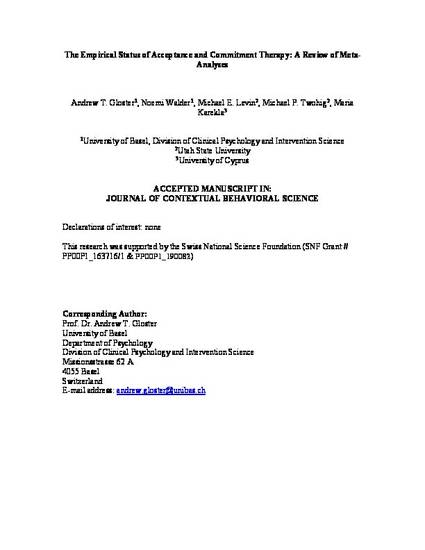
The efficacy of Acceptance and Commitment Therapy (ACT) has been evaluated in many randomized controlled trials investigating a broad range of target conditions. This paper reviews the meta-analytic evidence on ACT. The 20 included meta-analyses reported 100 controlled effect sizes across n = 12,477 participants. Controlled effect sizes were grouped by target conditions and comparison group. Results showed that ACT is efficacious for all conditions examined, including anxiety, depression, substance use, pain, and transdiagnostic groups. Results also showed that ACT was generally superior to inactive controls (e.g. waitlist, placebo), treatment as usual, and most active intervention conditions (excluding CBT). Weaknesses and areas for future development are discussed.
